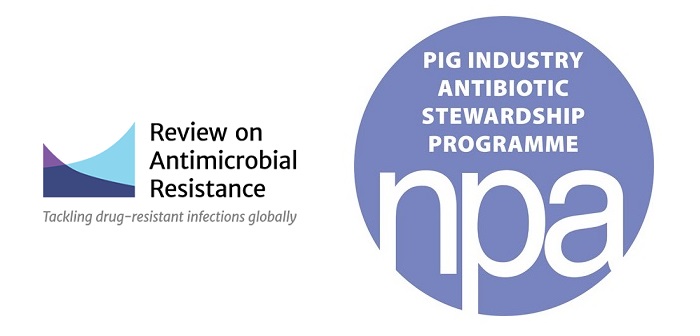The UK pig industry is fully committed to a programme of action to address anti-microbial resistance (AMR), with the sector already being “up for the challenge”, says the National Pig Association (NPA).
Responding to the Government’s implementation commitment concerning Lord O’Neill’s Review on Antimicrobial Resistance (AMR), NPA pointed out that it had already launched its Antibiotic Stewardship Programme, providing an industry-based framework for action and progress.
In addition, more than five million pigs have now been entered onto eMB-Pigs, the industry database introduced to record antibiotic usage.
According to NPA’s Dr Georgina Crayford, who leads on AMR for the association, the industry is fully aware of its responsibilities on the issue. It does need support from Government, however, to achieve the mutual aims now set out for AMR action.
“The pig industry is completely committed to meeting the recommendations laid out in the O’Neill report,” she said. “Good progress is being made in recording antibiotic usage and we continue to encourage farmers to use eMB-Pigs so we can quantify national usage levels and ensure appropriate reduction targets are set.
“We will continue to work with Government and the industry alliance brought together by RUMA (Responsible Use of Medicines in Agriculture) to set responsible and proportionate usage targets for the pig sector.
“However, any reduction in antibiotic use must balance the need to address AMR with the equally important need to protect the health and welfare of our livestock.
“It is also important to stress that AMR will only be addressed through a holistic One Health approach covering human and animal medicine.”
While welcoming the Government’s commitment to work with the industry to address wider animal health issues, including through the Rural Development Scheme, Dr Crayford added that the pig sector can’t do “all this on our own”.
“Producers need support from Government, particularly for new pig buildings, which are more hygienic and allow better biosecurity, to improve herd health and reduce the need for antibiotics,” she said.
“This is something we will be pushing for now and as the Government develops its post-Brexit UK agricultural support policy as a means of helping both producers and the wider public.”




